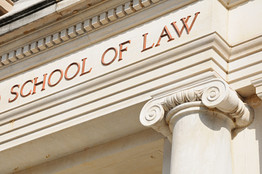A Social Trust Theory of Criminal Law, Part II
As I discussed in my previous post, the job of criminal law is to reassure us that we will not be victimized when we leave the safety of our homes and families and engage with the wider world. Such reassurance is necessary for our economy to work and for us to be able to enjoy the individual freedoms so exalted by our culture. But the central dilemma of criminal law is this: criminal law and its enforcement not only function as sources of reassurance, but as threats in their own right—producers of fear that may undermine, rather than enhance, people’s sense of security and willingness to engage with the wider world. Every time the criminal-justice system acts against a citizen, it causes harm in some form or another. Viewing this harm, some will feel reassured—if the system, for instance, is seen as thereby deterring future harms—but others will feel frightened. Indeed, the very essence of deterrence is fright. There is no unalloyed good when the system acts. The bitter always accompanies the sweet.

 Happy New Year! Our January guest blogger will be 2L Vanessa Richmond. Vanessa is from Chicago and attended the University of Illinois at Urbana-Champaign; she is interested in commercial litigation, intellectual property, and media law. Many thanks to our previous guest, 3L Frank Remington.
Happy New Year! Our January guest blogger will be 2L Vanessa Richmond. Vanessa is from Chicago and attended the University of Illinois at Urbana-Champaign; she is interested in commercial litigation, intellectual property, and media law. Many thanks to our previous guest, 3L Frank Remington. Two weeks ago, the New York Times published an article entitled “
Two weeks ago, the New York Times published an article entitled “